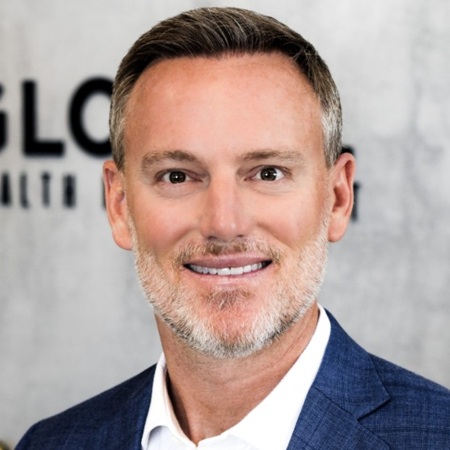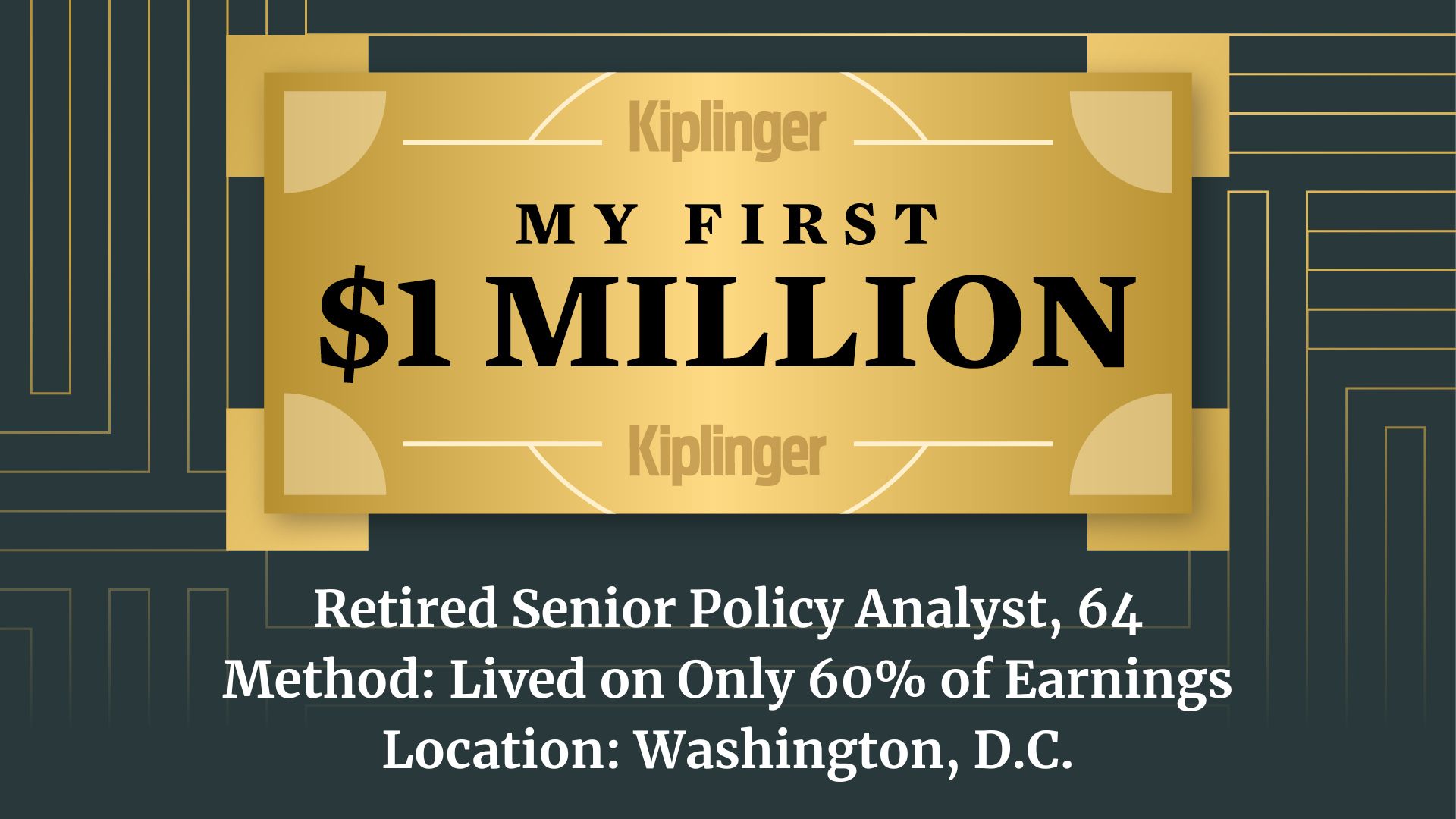Beware the Hidden Costs of Mutual Funds
The fees you may not even know you're paying can be hazardous to your investment health.

Profit and prosper with the best of Kiplinger's advice on investing, taxes, retirement, personal finance and much more. Delivered daily. Enter your email in the box and click Sign Me Up.
You are now subscribed
Your newsletter sign-up was successful
Want to add more newsletters?

Delivered daily
Kiplinger Today
Profit and prosper with the best of Kiplinger's advice on investing, taxes, retirement, personal finance and much more delivered daily. Smart money moves start here.

Sent five days a week
Kiplinger A Step Ahead
Get practical help to make better financial decisions in your everyday life, from spending to savings on top deals.

Delivered daily
Kiplinger Closing Bell
Get today's biggest financial and investing headlines delivered to your inbox every day the U.S. stock market is open.

Sent twice a week
Kiplinger Adviser Intel
Financial pros across the country share best practices and fresh tactics to preserve and grow your wealth.

Delivered weekly
Kiplinger Tax Tips
Trim your federal and state tax bills with practical tax-planning and tax-cutting strategies.

Sent twice a week
Kiplinger Retirement Tips
Your twice-a-week guide to planning and enjoying a financially secure and richly rewarding retirement

Sent bimonthly.
Kiplinger Adviser Angle
Insights for advisers, wealth managers and other financial professionals.

Sent twice a week
Kiplinger Investing Weekly
Your twice-a-week roundup of promising stocks, funds, companies and industries you should consider, ones you should avoid, and why.

Sent weekly for six weeks
Kiplinger Invest for Retirement
Your step-by-step six-part series on how to invest for retirement, from devising a successful strategy to exactly which investments to choose.
Your financial portfolio probably looks like alphabet soup, chock-full of investments you probably know little about. Some of those investments—I'm thinking mutual funds here—may not even be beneficial to you.
Yes, you read that right. This financial guy is about to drop a bomb on you about your mutual funds and how they aren't the great deal for your bottom line that you thought.
The reason: They are filled with hidden fees that eat away at your profits. But once you're aware of them, you can more carefully choose the right funds for you and know to work only with professionals who will help you avoid those unnecessary costs.
From just $107.88 $24.99 for Kiplinger Personal Finance
Become a smarter, better informed investor. Subscribe from just $107.88 $24.99, plus get up to 4 Special Issues

Sign up for Kiplinger’s Free Newsletters
Profit and prosper with the best of expert advice on investing, taxes, retirement, personal finance and more - straight to your e-mail.
Profit and prosper with the best of expert advice - straight to your e-mail.
Do any of these sound familiar: share-holder servicing fee, account manager fee, revenue-sharing fee? The answer is probably "no" for the average investor. Yet those kinds of undisclosed fees are so detrimental to investors that the Securities and Exchange Commission has tried (unsuccessfully) to get Congress to approve more stringent reporting requirements.
The SEC's concern was that the vast majority of investors don't have a clue about what kind of fees they are paying to have someone manage their mutual funds. In some cases, investors don't know the fees exist at all.
Certainly, as even the SEC points out, some transactional fees are fairly transparent, such as front- and back-end sales loads. But other costs, such as management fees and distribution fees, aren't so easy to come across without some digging. They are just reflected in account balances, so investors don't know that these recurring costs have been subtracted and just assume that their balance is showing how well the investment performed.
And that's not what the account balance is showing—at all.
So if you're not making that money, who is?
- The companies that create the funds watch their bottom line expand from the fees they charge to manage and administer them.
- The brokers who sell shares of mutual funds to clients generate commissions and fees for themselves.
A river of money flows through the mutual-fund industry, supporting hundreds of thousands of jobs and creating substantial profits for the companies involved. When any industry becomes well entrenched in an economy and the profits are as large as they are, it invites greater efficiencies, but also potentially disastrous competition in the long run.
Add to this "soft-dollar" payments, in which mutual companies direct trading activity to certain brokerage houses, generating commissions for themselves, and "shelf-space" payments, which are revenue-sharing arrangements for a brokerage recommending a specific fund to clients.
Exactly how much could all these fees cost you? The SEC points out that even small differences in fees can be significant and gives this example: If you invested $10,000 in a fund that produced a 10% annual return before expenses and had annual operating expenses of 1.5%, then after 20 years you would have roughly $49,725. But if the fund had expenses of only 0.5%, then you would end up with $60,858.
So what can you do about it?
- You need to take a hard look at your investments and look at your selling and buying activity. If you're buying and selling high-equity funds in a volatile market, you are likely to come out on the losing end. Investors who hold less volatile, more diversified funds fare better at weathering the ups and downs of the market. Consider index funds that have lower expenses and better tax advantages.
- Work with a financial adviser who is compensated on an agreed-upon annual advisory fee, no matter which investments they recommend.
- Don't fall for advertisements and commercials pushing investments with a catchy name or celebrity endorsement. Check the quarterly reports and make reasoned choices.
- After accumulating significant assets, consider moving them to separately managed accounts (SMAs) handled by a reputable custodian. SMAs provide access to professional money management and diversification. They also have potentially lower overall expenses, tax efficiency, customization and control and a tested and effective investment strategy.
If you do your homework, make reasoned choices about which funds you pick or the wealth adviser you choose, and show patience in your investments, the bottom line is more likely to provide you with the life of your dreams.
Andrew M. Costa, managing director and co-founder of Global Wealth Management in Fort Lauderdale, co-authored the book SuccessOnomics with Steve Forbes. He also is co-host of "The Global Wealth Show," a financial radio show on 610 WIOD and iheartradio.com.
Kim MacCormack contributed to this article.
Profit and prosper with the best of Kiplinger's advice on investing, taxes, retirement, personal finance and much more. Delivered daily. Enter your email in the box and click Sign Me Up.

Andrew M. Costa is the managing director and co-founder of Global Wealth Management in Fort Lauderdale, Florida, ranked the No. 1 financial advisory firm in Southeast Florida by USA TODAY's 2025 Best Financial Advisory Firms. He focuses on creating comprehensive retirement strategies. Andrew is co-host of Retire Now Florida on NBC, CBS, ABC and FOX and has been quoted in The Wall Street Journal. He is also co-author of Retirement, Simplified (request a free copy of the book by emailing info@askglobalwealth.com).
-
 5 Side Gigs That Let You Travel the World in Retirement
5 Side Gigs That Let You Travel the World in RetirementEarn as you explore: High-flexibility side gigs that enable retirees to blend work and travel in 2026.
-
 My First $1 Million: Retired Senior Policy Analyst, 64
My First $1 Million: Retired Senior Policy Analyst, 64Ever wonder how someone who's made a million dollars or more did it? Kiplinger's My First $1 Million series uncovers the answers.
-
 How You Can Use Donor-Advised Funds to Lower Your Tax Bill
How You Can Use Donor-Advised Funds to Lower Your Tax BillCharitable bunching with a donor-advised fund (DAF) can maximize both the tax benefits and the long-term sustainability of your philanthropic ventures.
-
 Money Monsters Under the Bed? Here's What You're Really Afraid Of
Money Monsters Under the Bed? Here's What You're Really Afraid OfWhen financial anxiety keeps you awake, money isn't usually the root cause of the problem. Identifying the real demons will help you sleep — and live — better.
-
 Finances Not Going Anywhere? These 3 Steps Can Help You Find Your North Star
Finances Not Going Anywhere? These 3 Steps Can Help You Find Your North StarIf you're overwhelmed by financial planning, a long list of to-dos won't help. Find clarity by focusing on steps built around what's most important to you.
-
 I'm a Wealth Adviser: This Strategy Can Slash Your Taxes on Large Stock or Property Sales
I'm a Wealth Adviser: This Strategy Can Slash Your Taxes on Large Stock or Property SalesSelling a major asset can result in huge capital gains taxes, but combining direct indexing with tax-loss harvesting can significantly reduce your tax bill.
-
 Why 2026 Could Be the Year to Reconsider Global Diversification
Why 2026 Could Be the Year to Reconsider Global DiversificationIt's been a while since investors had to stray beyond U.S. stocks to reap rewards. But current risks and opportunities suggest it's time to look abroad again.
-
 I'm a Financial Planner: This Is How You Can Legally Divorce the IRS for the Rest of Your Life
I'm a Financial Planner: This Is How You Can Legally Divorce the IRS for the Rest of Your LifeWith some careful planning focused on the standard deduction, retirees who have large sums in tax-deferred accounts can avoid unpleasant tax bills and even part ways with the IRS for good.
-
 9 Ways the Wealthy Waste Thousands in Taxes: A Checklist for What Not to Miss
9 Ways the Wealthy Waste Thousands in Taxes: A Checklist for What Not to MissThe tax code contains plenty of legitimate ways for the wealthy and business owners to cut taxes. Use this checklist to minimize taxes and stay compliant.
-
 When Estate Plans Don't Include Tax Plans, All Bets Are Off: 2 Financial Advisers Explain Why
When Estate Plans Don't Include Tax Plans, All Bets Are Off: 2 Financial Advisers Explain WhyEstate plans aren't as effective as they can be if tax plans are considered separately. Here's what you stand to gain when the two strategies are aligned.
-
 Counting on Real Estate to Fund Your Retirement? Avoid These 3 Costly Mistakes
Counting on Real Estate to Fund Your Retirement? Avoid These 3 Costly MistakesThe keys to successful real estate planning for retirees: Stop thinking of property income as a reliable paycheck, start planning for tax consequences and structure your assets early to maintain flexibility.